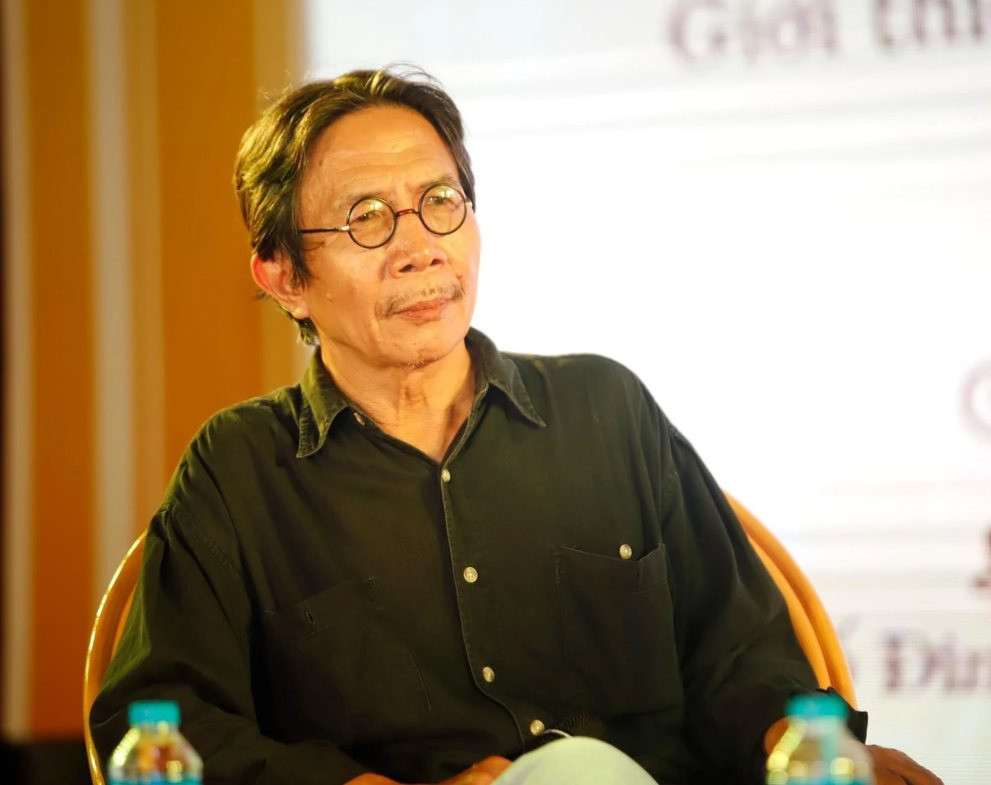
Even a few years ago, when he had just retired, he was still an editor for a newspaper, publishing 6 issues a week. Now, besides being a journalist, he has also become a person that the press “asks for opinions” on a number of issues related to Hanoi culture… Some people call him a “Hanoi scholar”, some call him a cultural researcher, and some even call him a “historian of Hanoi”.
Every time I meet journalist Nguyen Ngoc Tien, I see him passionately talking about journalism. He said that nowadays everyone uses smartphones to read online newspapers and surf Facebook. But he still likes to hold paper newspapers in his hands, slowly reading each news item and each small section. And to this day, he still maintains the habit of buying and reading paper newspapers every day.
“It is in the tiny news boxes or document sections that many people ignore that I find hidden topics and stories that I can explore and expand on,” journalist Nguyen Ngoc Tien shared.
Perhaps, it is a long-standing habit of a veteran journalist who worked at the Hanoi Moi newspaper, experiencing many periods of Vietnamese journalism. That habit also forms a professional practice of Nguyen Ngoc Tien, so that he can diligently dig deep and search for old documents.
From small, even trivial pieces, through Nguyen Ngoc Tien's thinking, and with skillful connections, elaborate series of articles have been formed, even forming books that just mentioning a few titles, people immediately remember, ah, by Nguyen Ngoc Tien.
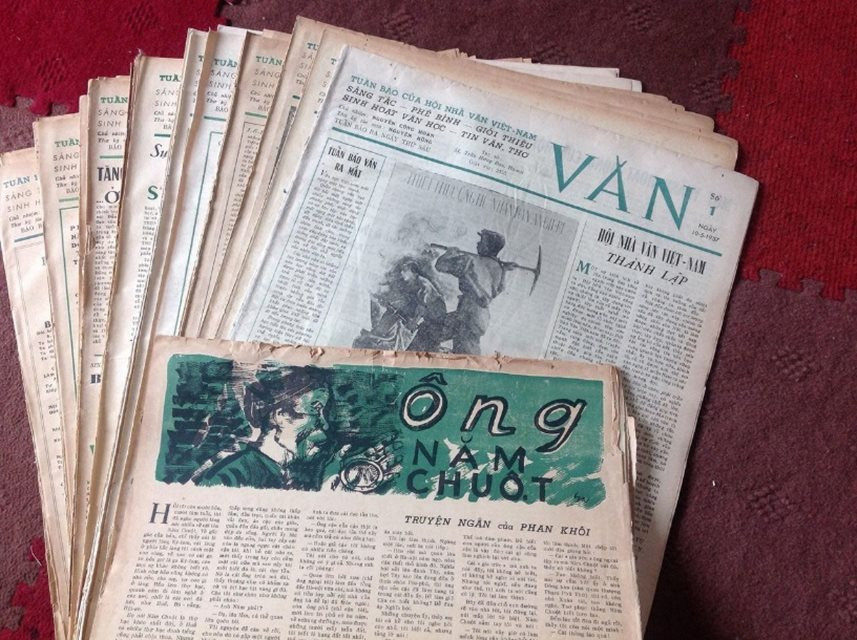
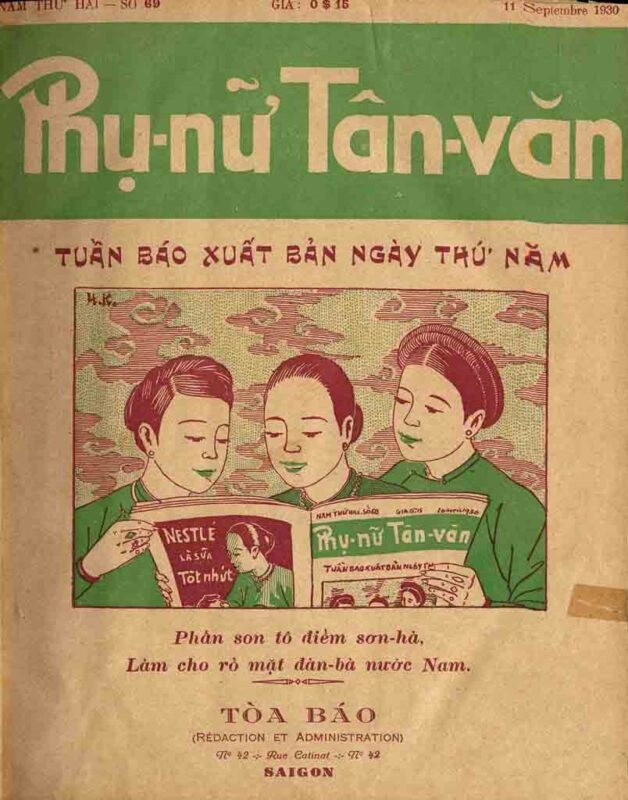
It can be mentioned right away, those are the titles of the books "5678 steps around Hoan Kiem Lake", "Going across Hanoi", "Going along Hanoi", "Going through Hanoi", "Chuyen hau huong Dam", and recently the book "Ha Noi con mot nhat" (This little bit left). In Nguyen Ngoc Tien's books, readers will see the outstanding vivid documents, some of which are "new" to many people. For example, everyone who passes by sees the blue water of Hoan Kiem Lake but does not know the reason. Or the reason why around Hoan Kiem Lake there are places filled with 10 m2, 20 m2. According to journalist Nguyen Ngoc Tien, this is a very small but familiar story, everyone can see it every day but has no answer, and he is the one who is doing it.
“I always try to bring personal memories together with the community. My story is sometimes isolated, so writing it down will not be very reliable. It may be exclusive, but if it is consistent with people's problems, it will be more accepted, because people can find themselves in it,” the journalist added. He also gave an example, during the subsidy period, each family was regulated how many kilograms of rice, sugar, and meat they had. If he wanted to write a sensational story, Nguyen Ngoc Tien said, he could completely make up a story like going to buy meat, being too busy playing and being taken away by a dog. But he wrote the truth that when the family was evacuated, each person in a different place, the parents had to divide the meat by cooking it saltier to save, so that the children could all have a share. Or when frying eggs, many people often add rice water to make the eggs bigger, so that each person would get a piece. Small details, often recalled and connected into a story, will create a good psychological effect on information reception.
Journalist Nguyen Ngoc Tien said that he started writing for newspapers when he was a third-year student at the Hanoi University of Theatre and Cinema. The first article he wrote about director Xuan Huyen was published in the People's Army newspaper. The second article published in Hanoi Moi was titled "Art and Old Advertising" and was sent to the editorial office by himself. The third article published in Dai Doan Ket was not a newspaper article but a short story...
“In 1990, I went to Ho Chi Minh City to do my graduation thesis. To earn money to live, I wrote for newspapers. The person who helped me enthusiastically was journalist Pham Thanh Van, who was then a reporter for Tuoi Tre newspaper. He gave me tickets to go see movies, cai luong, drama, and hat boi. Then he told me to "plow through" articles to send to him and he found photos to send to Long An Weekend, Khanh Hoa Sunday, Tay Ninh newspapers... Thanks to that, I had money to spend during the four months in Ho Chi Minh City to defend my graduation thesis in June 1990. Two months later, I returned to Ha Noi Moi newspaper...", Nguyen Ngoc Tien recalled.
The habit of exploiting and digging into documents in the press came to journalist Nguyen Ngoc Tien quite early.
Because the topic of his thesis was “The History of Southern Cai Luong before Liberation”, Nguyen Ngoc Tien had to look for newspapers published from the beginning of the 20th century until 1975. He went to the Ho Chi Minh City General Library to read the newspapers. Nguyen Ngoc Tien still remembers that at that time, for every page of document copied, the library charged 2 kg of rice (converted to money). After that, in order to compare with Northern Cai Luong, he had to go back to Hanoi to the National Library to read newspapers published before 1954 in the North. “For me, old newspapers are a valuable source of information, no less valuable than books,” journalist Nguyen Ngoc Tien affirmed.
Since then, throughout his journalism career, journalist Nguyen Ngoc Tien has consciously sought out and built his own journalistic materials. Articles and news items in contemporary newspapers that he felt were “valuable” were all kept by him, so that whenever he saw somewhere, in the vastness of old books and newspapers, documents that could be linked and thoroughly answer the question, he would add them. When he felt that the materials were solid, he would sit down to write.
Regarding documents related to Hanoi topics in the old press, according to journalist Nguyen Ngoc Tien, "almost every newspaper has articles and documents about Thang Long - Hanoi". From the first national language newspapers such as Dong Duong Tap Chi to Phong Hoa, Thuc Nghiep, Ha Thanh Ngo Bao, then in the 1930s, the newspapers Phu Nu Thoi Dam, Ngay Nay, Ha Noi Bao, Ha Noi Hang Ngay, Trung Bac Tan Van...
“The reason why the topic of Hanoi is exploited is because many newspaper offices are mainly in Hanoi. On the other hand, in the past, newspapers had few people so they could not regularly send reporters to the provinces. Only when there was a problem in the provinces would the editors send reporters. In the past, the newspaper writers were mainly writers, so they could write an article from their homes to the editorial office,” Nguyen Ngoc Tien shared. However, according to him, there is another very useful source of information about Hanoi, which is in French newspapers. Sometimes their comments and assessments are from a Western perspective, so they are quite interesting. Besides, many books written by French people from the 18th century to the first half of the 20th century about Hanoi in particular and Vietnam in general contain valuable information that cannot be found anywhere else.
By reading the works of previous generations of journalists, Nguyen Ngoc Tien not only found valuable materials. He also learned how to write with a “literary tone” from his predecessors. “I still apply this in my articles: writing with a literary tone. Literary language often contains hidden meanings that make readers think about it, so the article can live longer,” he said.
Journalist Nguyen Ngoc Tien, born in 1958, is the author of many books about Hanoi, including essays, research, and novels. He was awarded the Bui Xuan Phai Prize for Love of Hanoi in 2012 and the Hanoi Literature and Arts Award in 2012. He is one of 10 people honored as Outstanding Citizens of the Capital in 2023.
According to journalist Nguyen Ngoc Tien, Hanoi is not a new topic but is of interest, especially to older readers because they can reminisce about the past. There are many things to talk about here, from history, culture to habits, lifestyle, behavior, fashion , and cuisine. “I, like many other writers, cannot write everything, each person only does a part. Despite a lot of searching, I still cannot know everything about Hanoi. I also do not dare to accept titles such as "Hanoi scholar" or "Encyclopedia of Hanoi", I only like the way writer Truong Quy calls me "Historian of Hanoi", said Mr. Tien.
Source: https://daidoanket.vn/tim-bao-xua-ke-chuyen-cho-hom-nay-10283850.html








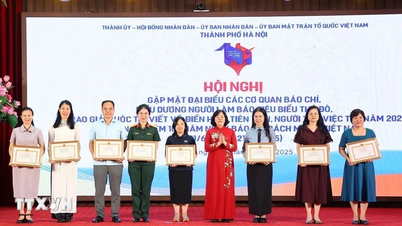

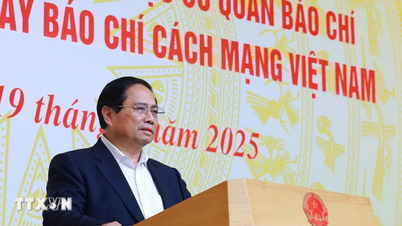
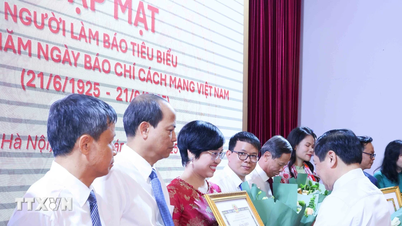
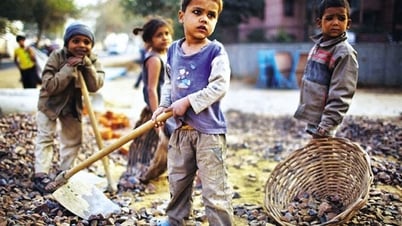



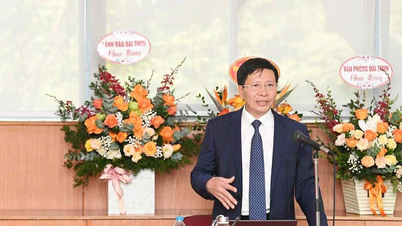





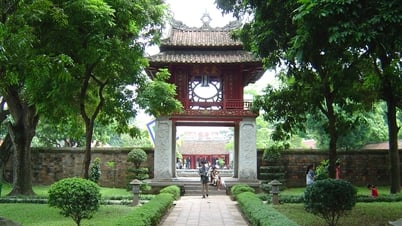





















































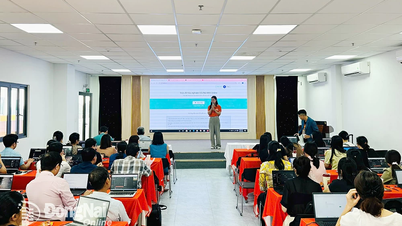

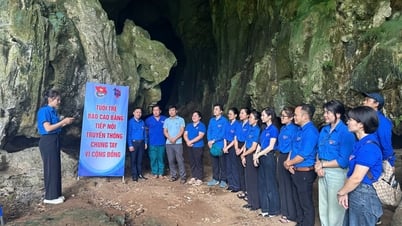













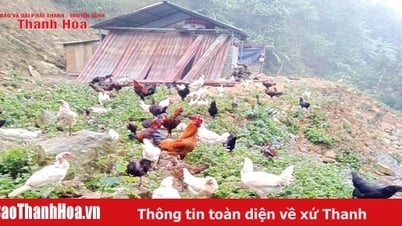


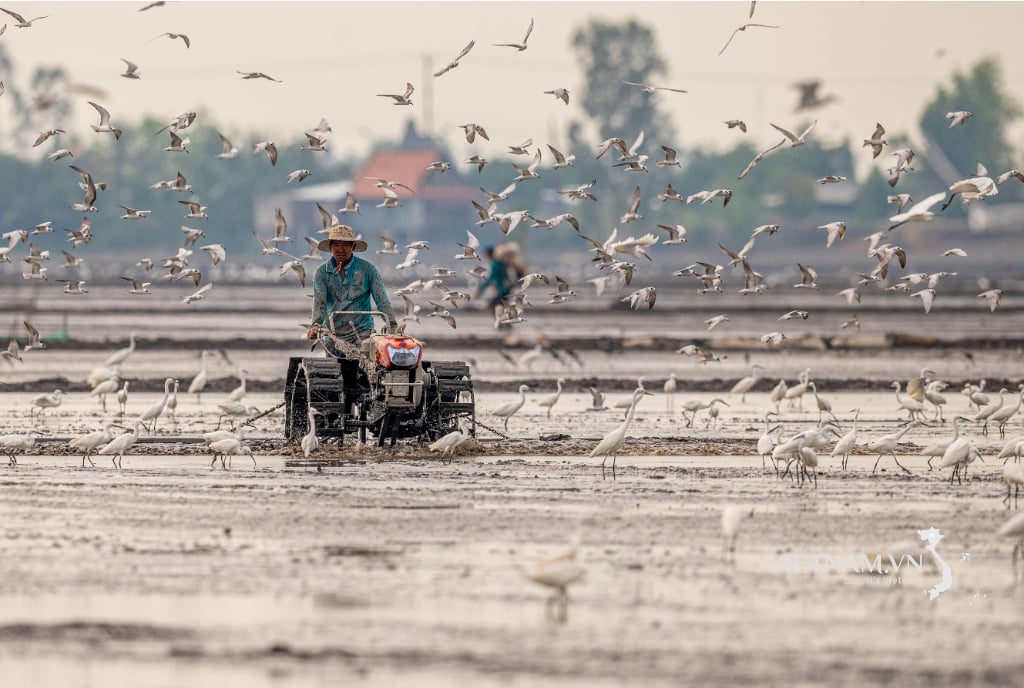


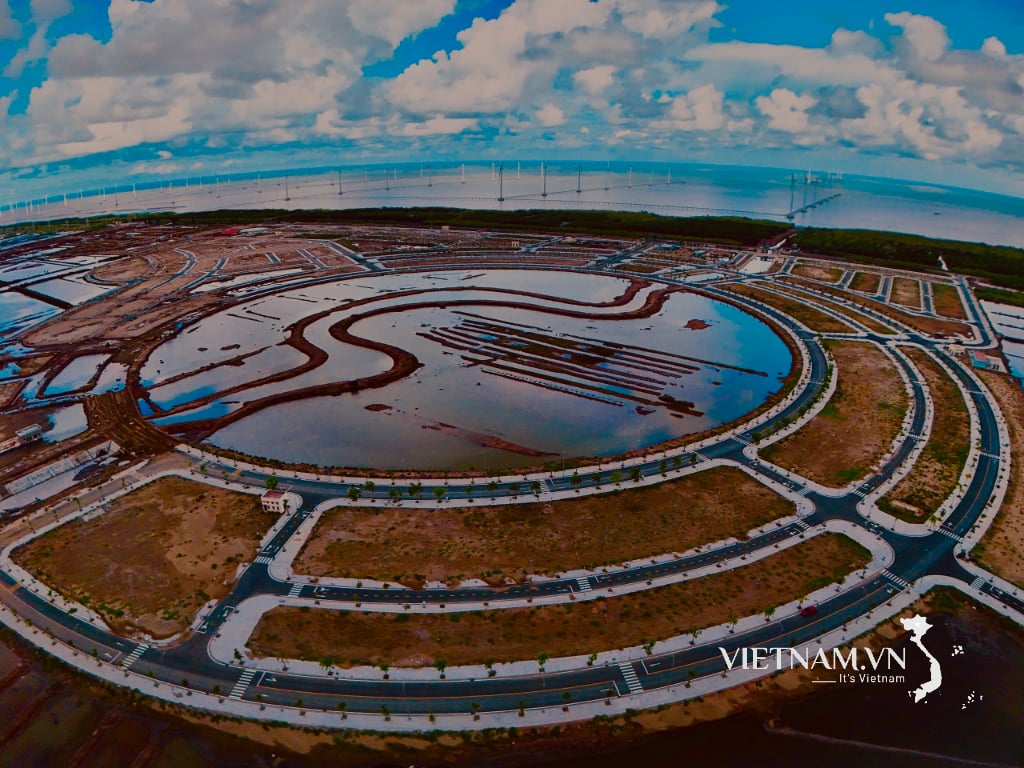
Comment (0)